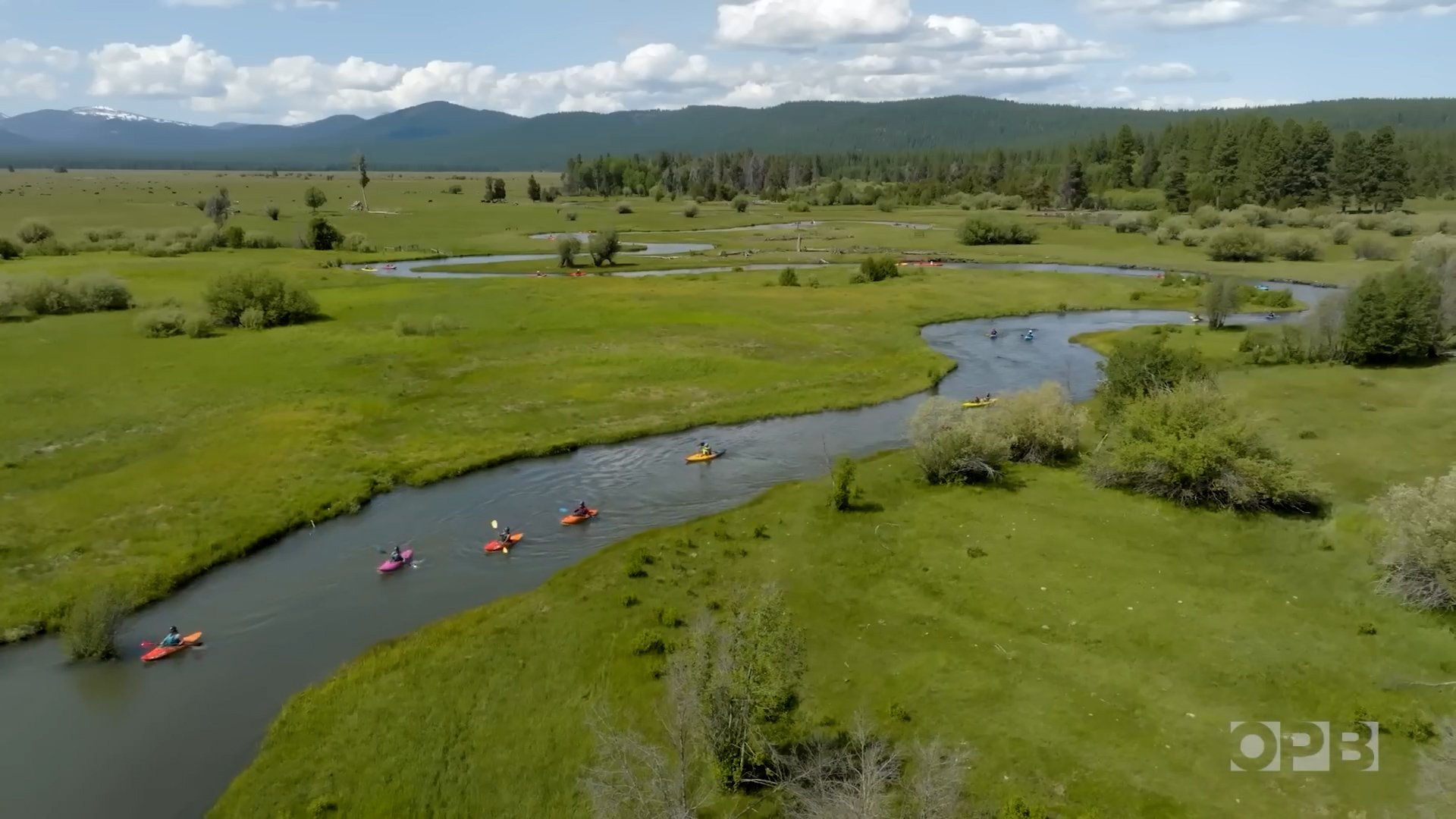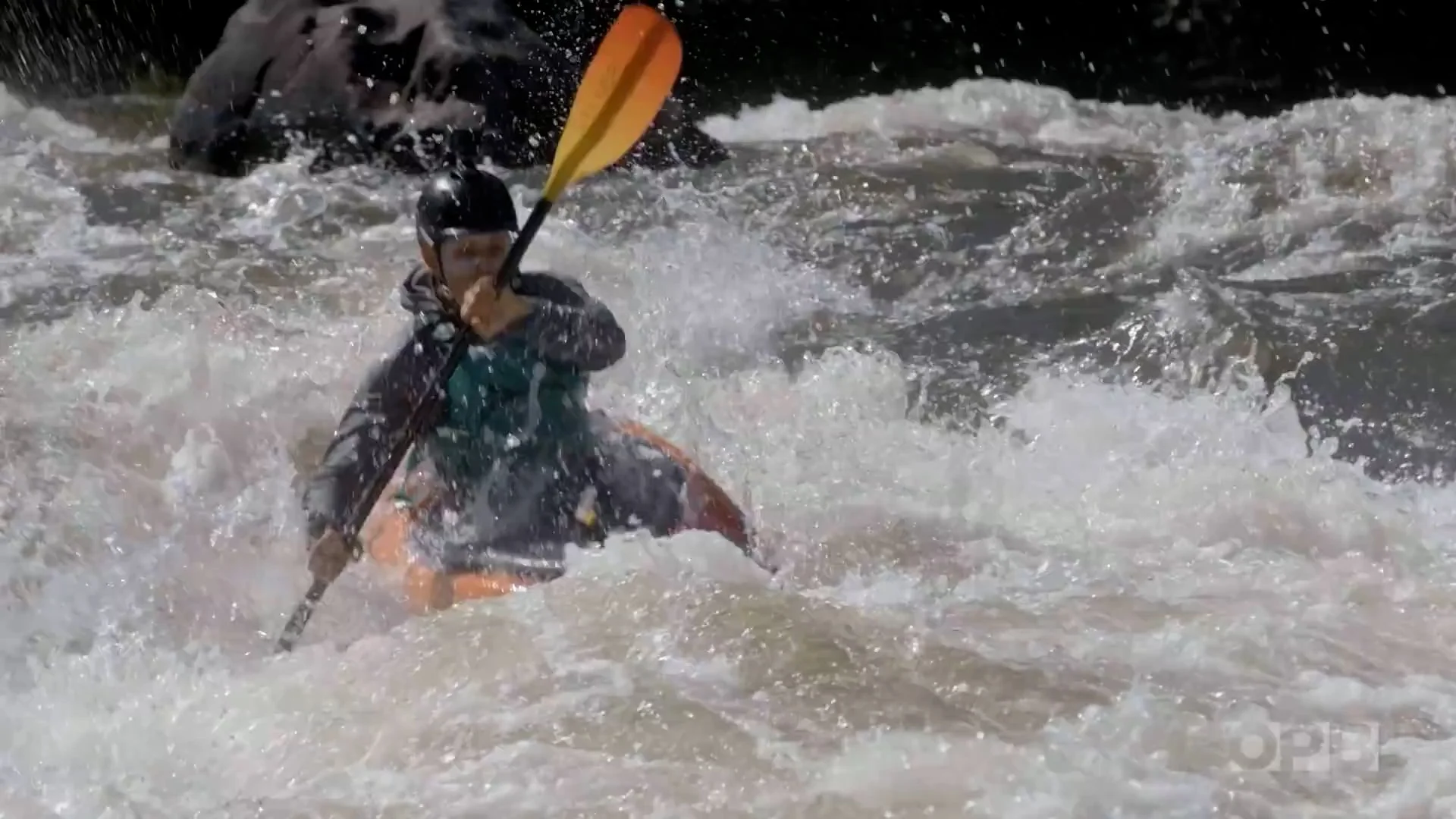Riding the River Home
OPB’s new documentary follows Indigenous teens on a once-impossible month-long journey down the free-flowing Klamath.
The newest short documentary from Oregon Field Guide begins not with experts or narration, but with the sound of young paddlers slicing into the newly opened, free-flowing Klamath River. A sweeping drone shot lifts over rugged canyon walls as the river churns below, then drops to water level where Indigenous teens test their skills, bobbing between rapids and charging headfirst into the biggest adventure of their lives.
From the sacred headwaters, across lakes, through whitewater, and all the way to the Pacific — a journey only possible now because the river is free again.
OPB’s First Descent: Kayaking the Klamath captures this rare moment in history with an energy that feels equal parts adventure film and cultural love letter.
A River Once Broken, Now Reborn
For more than a century, dams on the Klamath cut off salmon runs, reshaped landscapes, and separated Tribal communities from the river that sustains them culturally, spiritually, and economically. With the recent removal of the J.C. Boyle, Copco 1, Copco 2, and Iron Gate dams, the river is now flowing freely for the first time in generations — and that freedom sets the stage for this remarkable adventure.
The film follows more than 20 Indigenous youth, ages 13 to 20, who spent years preparing for a once-in-a-lifetime “source-to-sea” expedition. Many trained internationally — including in Chile — to build the skills they’d need to safely navigate the Klamath’s most challenging whitewater.
Their monthlong journey from Southern Oregon to the Pacific Ocean becomes the beating heart of the documentary.
Adventure, Identity, and a Legacy Reclaimed
While the film is filled with river chutes, powerful hydraulics, and adrenaline-soaked rapids, First Descent isn’t just about kayaking. It’s about connection — to homeland, to culture, to identity, and to the river that shaped generations before them.
For many paddlers, the trip carried deep emotional weight. They were following the same river that their ancestors fought to keep alive — a river whose salmon runs dwindled after the dams were built, and whose health became a symbol of both loss and resilience.
One paddler, 14-year-old Coley Miller, spoke of honoring her grandfather’s lifelong work to protect treaty resources. Another kayaker described the journey as “leading the c’iiyals [salmon] home.”
These young athletes don’t just ride the river — they tell its story.
Celebration of Accomplishments, realization of reality
The documentary’s emotional crescendo comes as the paddlers emerge from the fog at Requa, California, greeted by relatives, elders, and community members lining the riverbank. Cheering erupts as the teens hit the final stretch and run their kayaks onto the sand before sprinting into the ocean.
It’s a celebration of accomplishment — and of a river reclaiming itself.
Even after reaching the Pacific, many of the paddlers say they feel called to continue the work. Some are forming paddle clubs in their home communities. Others are advocating at conferences and engaging in Tribal youth councils.
Their voices collectively echo, There are still two dams upstream. There are still water-quality issues. There is still a river healing.
And these young leaders — now bonded by 310 miles of shared challenge — say they’re ready to keep pushing.
Worth the watch
For those who follow river restoration, Tribal stories, or outdoor adventure, First Descent: Kayaking the Klamath is worth watching. It’s beautifully shot, emotionally rich, and offers an uplifting window into the next generation of river stewards.
This isn’t just a story about paddling. It’s a story about belonging — and about what happens when a river is finally allowed to flow the way it was meant to.
🎥 Watch the full documentary on YouTube:
https://www.youtube.com/watch?v=4FuGuWeAra4
📖 Read OPB’s full feature:
https://www.opb.org/article/2025/11/13/first-descent-klamath-documentary/



